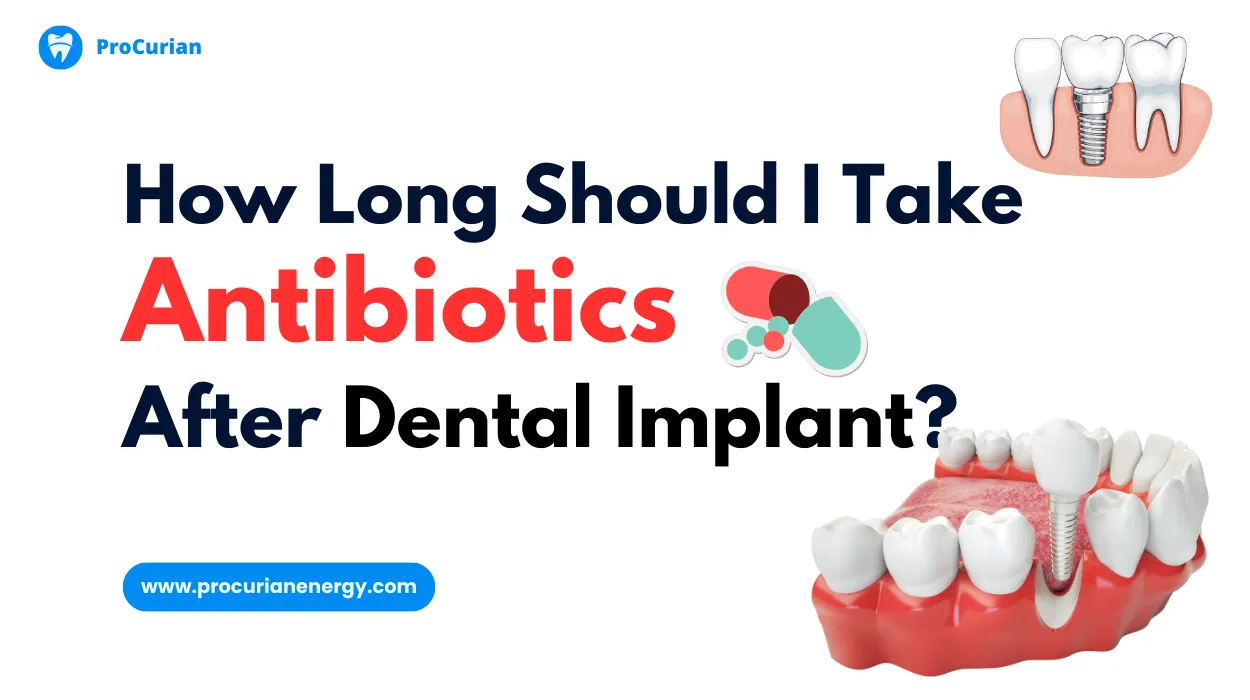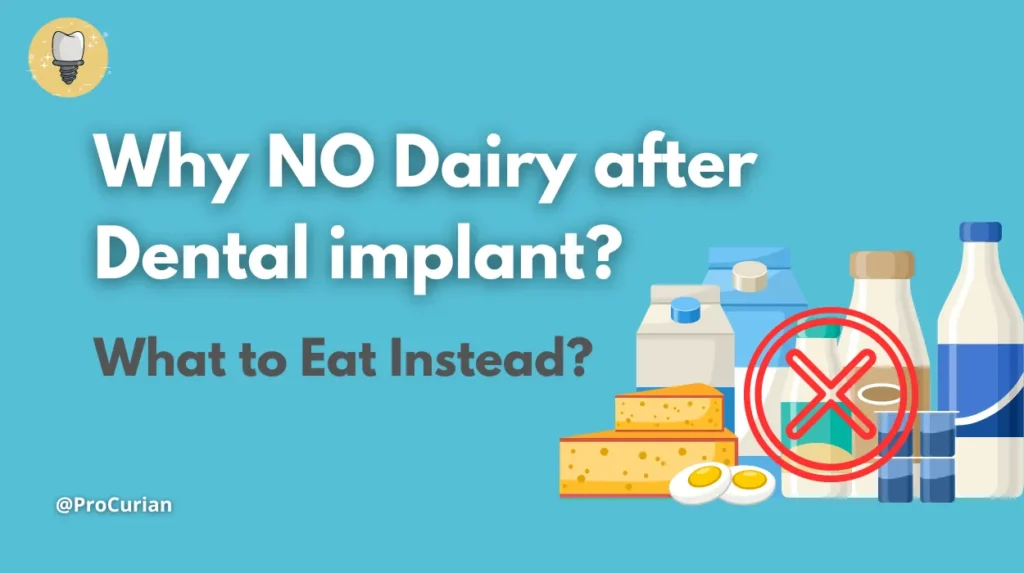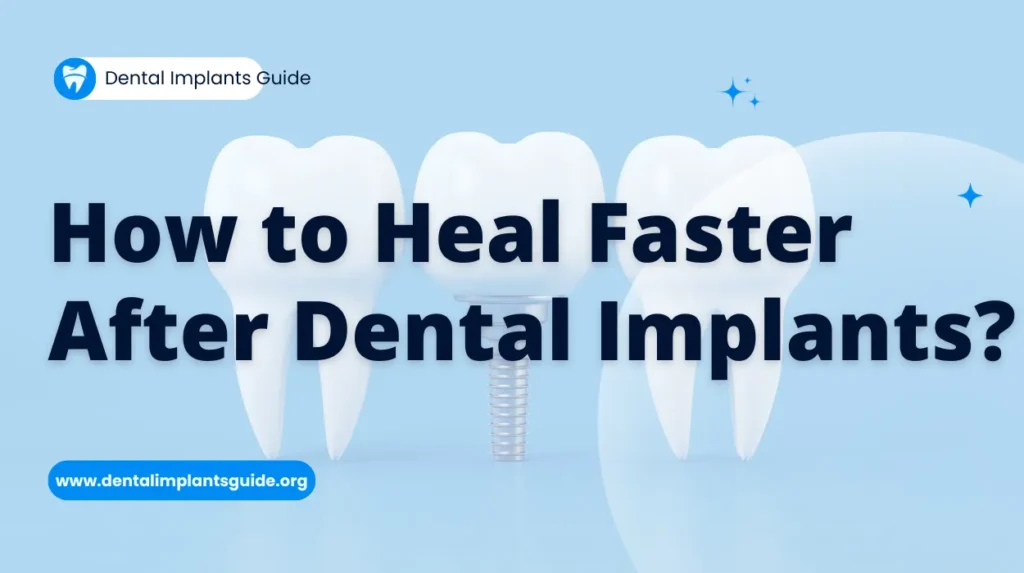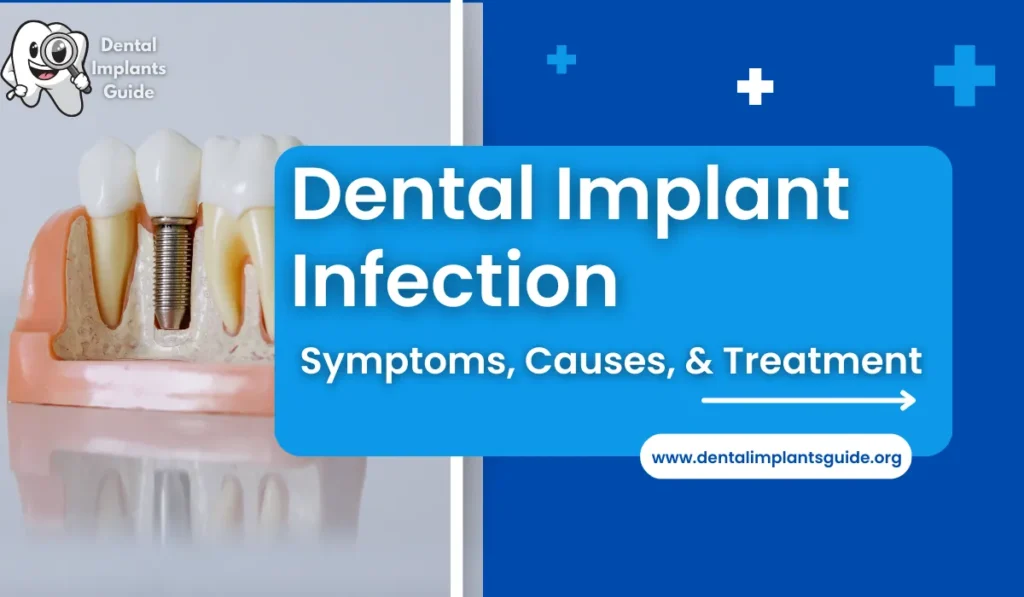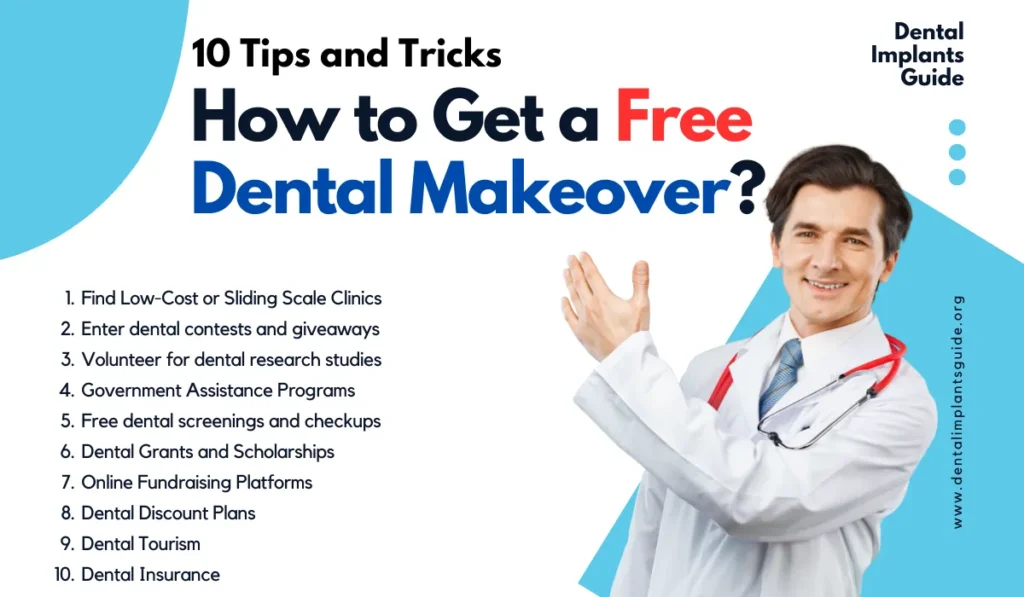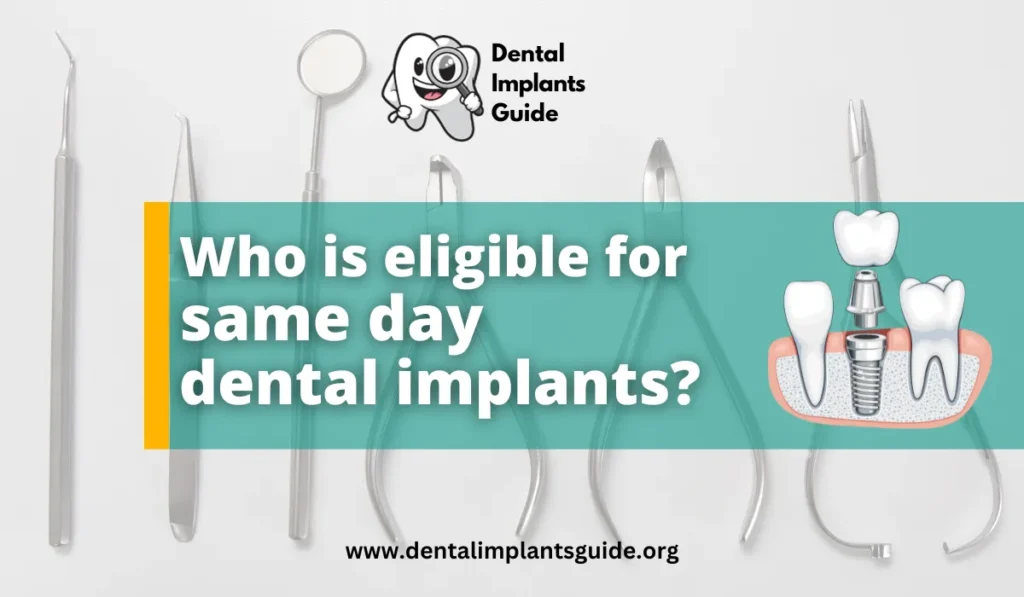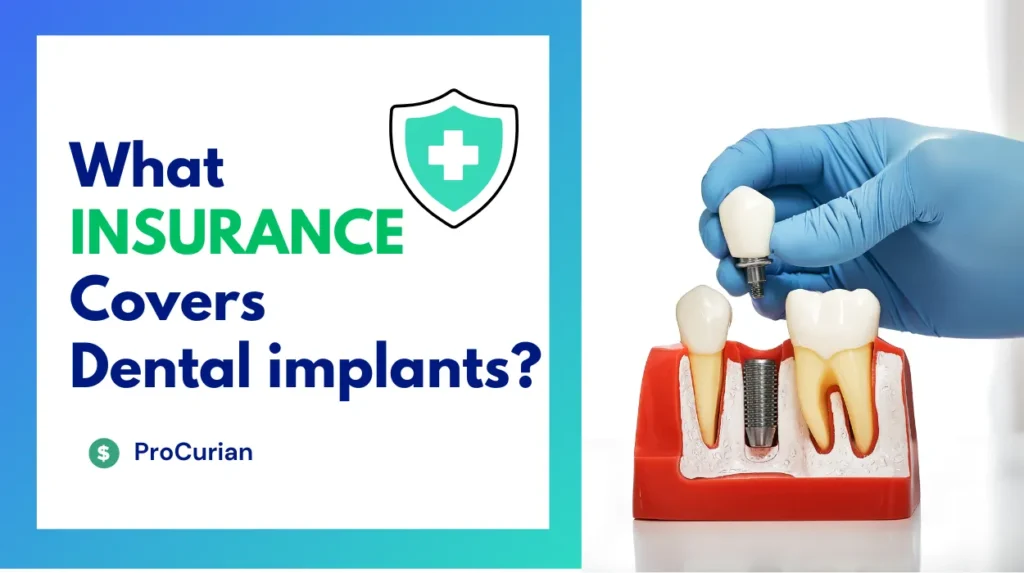A dental implant is a significant step toward a more attractive and healthy smile. However, you must take good care of your dental implant as you would any surgical procedure in order for it to heal properly and last a lifetime.
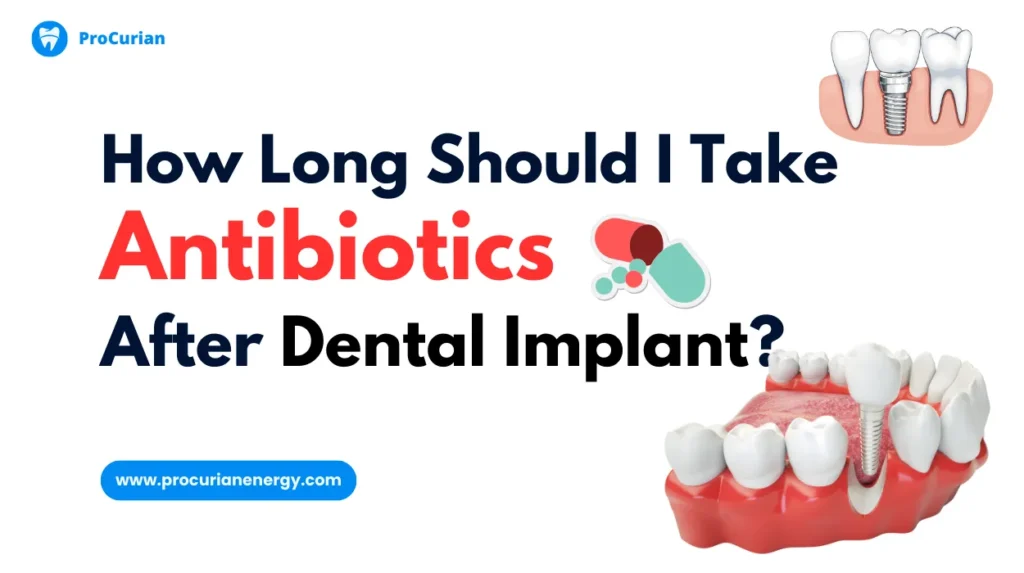
Patients often ask, “How long should I take antibiotics after a dental implant?” In order to help you understand the significance of antibiotics in the dental implant process, we’ll lay out everything you need to know in this article.
Why Are Antibiotics Important After Dental Implants?
An incision in the gums and a drill into the jawbone are required to implant a dental implant. The result could be that bacteria can enter the system.
Antibiotics are important for preventing and treating any potential bacterial infections before, during, and after surgery. These reasons explain why they’re crucial:
Infection Prevention – Antibiotics help reduce the risk of infection at the implant site, which can lead to complications and implant failure.
Healing Support – Antibiotics aid in the healing process by keeping bacterial infections at bay, allowing your body to focus on repairing the implant site.
Bone Health – Infections can affect the bone surrounding the implant, potentially leading to bone loss. Antibiotics help protect the bone and ensure the implant remains stable.
Note: If you’re unable to afford dental implant surgery, consider exploring options like dental implant grants. These programs may provide financial assistance or discounts to help cover the cost of the procedure. Even if you didn’t get approved for the grants, here are some insurance that covers Dental implants.
How Long Should You Take Antibiotics?
The duration for which you should take antibiotics after a dental implant varies from patient to patient.
It primarily depends on your dentist’s recommendation and your specific case. Usually, antibiotics are prescribed for about 7-10 days.
Here are 5 important factors that influence the duration:
1. Health Condition – If you have certain medical conditions or a compromised immune system, your dentist may prescribe antibiotics for a longer period to reduce the risk of infection.
2. Complexity of the Procedure – More complex implant surgeries may require a longer antibiotic course to ensure proper healing.
3. Healing Progress – Your dentist will monitor your healing progress and may adjust the duration of antibiotics accordingly. It’s essential to attend follow-up appointments as scheduled.
4. Type of Implant – Different types of dental implants may require varying antibiotic regimens. Your dentist will select the appropriate antibiotics based on the type of implant used.
5. Individual Response – Your body’s response to the antibiotics also plays a role. If you experience any signs of infection during or after the healing process, consult your dentist immediately.
To ensure you are following the right antibiotic regimen, always follow your dentist’s instructions and take the prescribed antibiotics as directed.
Types of Antibiotics used after Dental Implants
Dentists typically prescribe antibiotics that are effective against oral bacteria. Here are some best antibiotic for dental implant infection:
- Amoxicillin
- Clindamycin
- Azithromycin
- Ciprofloxacin
The specific antibiotic and dosage will depend on your individual needs and any allergies or sensitivities you may have. Make sure to inform your dentist of any allergies or adverse reactions to antibiotics you’ve experienced in the past.
Some commonly prescribed antibiotics for dental implant patients:
| Antibiotic | Common Dosage | Frequency |
|---|---|---|
| Amoxicillin | 500mg every 8 hours | 7-10 days |
| Clindamycin | 300mg every 6 hours | 7-10 days |
| Azithromycin | 500mg on day 1, 250mg on days 2-5 | 5 days |
| Penicillin | 500mg every 6 hours | 7-10 days |
| Cephalexin | 500mg every 6 hours | 7-10 days |
Risks and Side Effects
While antibiotics are essential for preventing infections, they can also have side effects. It’s crucial to be aware of these potential side effects, even if they are rare.
Common side effects of antibiotics after dental implants are:
Upset stomach – Nausea, vomiting, or diarrhea are possible side effects of antibiotics.
Allergic reactions – Some people may be allergic to certain antibiotics, which can lead to skin rashes, itching, or more severe reactions like difficulty breathing.
Yeast infections – Antibiotics can disrupt the balance of bacteria in your body, potentially leading to yeast infections in the mouth or other areas.
Antibiotic resistance – Overuse or misuse of antibiotics can contribute to antibiotic resistance, which makes it harder to treat infections in the future.
Antibiotics Usage Guidelines
Taking antibiotics correctly is crucial to ensure their effectiveness and minimize side effects. Here are some general guidelines to follow when taking antibiotics:
Take as prescribed – Always take the antibiotics exactly as your dentist or healthcare provider instructs you. Follow the recommended dosage and schedule.
Complete the full course – Even if you start feeling better before you finish your antibiotics, it’s essential to complete the entire prescribed course. Stopping too soon can lead to antibiotic resistance.
Don’t skip doses – Try to take your antibiotics at the same time each day to maintain a consistent level of the medication in your body.
Food and drink – Follow any specific instructions regarding taking antibiotics with or without food (avoid dairy products). Some antibiotics are better absorbed when taken with a meal.
Avoid alcohol – Alcohol can interact with some antibiotics and reduce their effectiveness. It’s best to avoid alcohol while you’re taking antibiotics.
How common is infection after dental implant?
Getting an infection after a dental implant is not very common. They’re quite rare. Dentists do their best to keep everything clean and safe during the implant process.
You also have a role to play. Following your dentist’s advice, like taking any prescribed medicines and keeping your mouth clean, can help you avoid infections.
Can antibiotics cause implant to fail?
No, antibiotics don’t usually make implants fail. Implants can fail for other reasons like infections or not bonding well with your jawbone.
Do you need to take antibiotics before dental implants?
In some cases, if you have certain medical conditions or a history of infections, your dentist might prescribe antibiotics before the implant procedure to prevent any potential infections. This is a precaution to keep you safe. But not everyone needs antibiotics before dental implants.
Can a dental implant infection go away on its own?
No, a dental implant infection usually doesn’t go away on its own. Infections are caused by harmful bacteria, and they need treatment to get better.
You’ll likely need to get the right medicine, like antibiotics, to help your body fight the infection.
What happens if you don’t take antibiotics after dental surgery?
If you skip antibiotics after dental surgery, it can lead to problems. Antibiotics help stop infections, which can happen when bacteria get into the surgery area.
Without antibiotics, an infection might develop, and that can be painful and make your recovery harder. Infections can also slow down the healing process, so it’s best to follow your dentist’s advice and take antibiotics if they prescribe them.
FAQs
How long do I need to take antibiotics after a dental implant?
Usually, antibiotics are prescribed for about 7-10 days after a dental implant.
Can I stop antibiotics if I feel better before finishing them?
No, complete the full course to ensure you’re protected from infection.
What if I miss a dose of antibiotics?
Take it as soon as you remember, but don’t double dose if it’s close to the next scheduled one.
Are there any side effects of antibiotics?
Some common side effects include upset stomach and diarrhea. If you have severe side effects, contact your dentist.
Can I drink alcohol while taking antibiotics?
It’s best to avoid alcohol, as it can interact with some antibiotics and reduce their effectiveness.
Final Words
Taking antibiotics after a dental implant is a precautionary measure to prevent infections in the delicate area where the implant was placed. Antibiotic treatments typically last 7 to 10 days, though this can change depending on your unique situation.
It’s important to carefully follow your dentist’s instructions and finish the entire course of antibiotics. Antibiotics must be used to prevent infections, but how they are used must be carefully watched. Watch out for potential side effects, and let your dentist know if you notice any.
If you take good care of your dental implant, it should heal successfully, and you’ll soon be able to smile with confidence and health.
